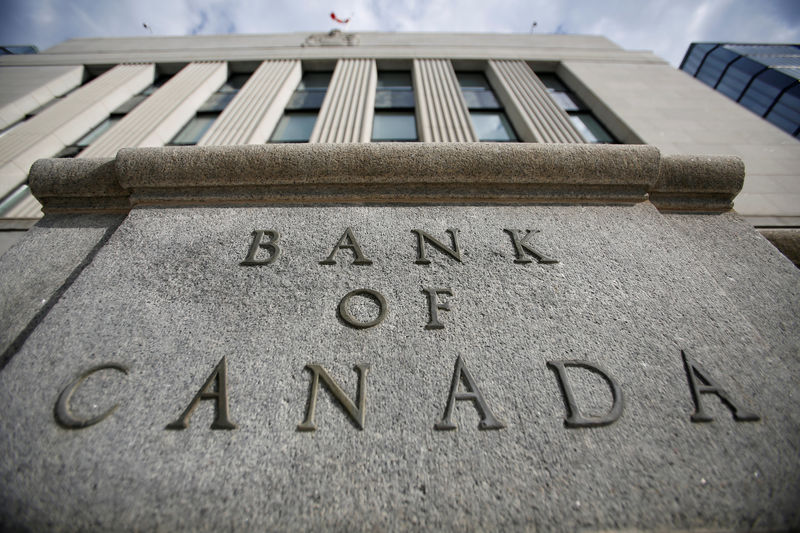By Andrea Hopkins and Leah Schnurr
OTTAWA (Reuters) - The Bank of Canada raised interest rates on Wednesday, surprising many, and left the door open to more rate hikes in 2017 even as it pledged to pay attention to how higher borrowing costs would hit Canada's indebted households.
The 25-basis-point increase to 1 percent followed a hike in July and puts Canada ahead of the curve in returning borrowing costs to more normal levels after they were slashed due to the 2007-2009 financial crisis. While the U.S. Federal Reserve has begun tightening, its pace has been slower.
The Bank of Canada said the hike was warranted given unexpectedly strong economic growth in the second quarter, but said future moves are not predetermined and would be guided by data and market developments.
"I guess they felt the economy was too strong for their comfort and raises inflation risks," said Sal Guatieri, senior economist at BMO Capital Markets.
While a significant minority in the market had bet on a move on Wednesday, most analysts had expected the bank would wait until its October meeting to hike, and the back-to-back increases rocked financial markets.
The Canadian dollar surged more than 2 percent after the announcement to its strongest since June 2015 at C$1.2140, while the 2-year yield jumped as much as 10 basis points to its highest since April 2012 at 1.450 percent.
The tone of the statement that accompanied the rate decision had not moderated at all since July, when the bank raised rates for the first time in nearly seven years, said Eric Theoret, currency strategist at Scotiabank.
"There is no sense that the Bank of Canada looks to be moderating the tighter path from here. For them, it's still a very data-dependent outlook," Theoret said.
The market had widely expected the Bank to reverse the two rate cuts it made in 2015 amid a decline in oil prices that sideswiped Canada's energy-dependent economy.
Now that the so-called insurance has been removed, the next step is less certain, particularly given the vulnerability of Canada's indebted consumers and housing market to higher interest rates.
Canadian household debt is near record levels and housing prices in Toronto, Canada's biggest city, have already fallen more than 20 percent from their April peak.
While some analysts fear higher rates will hurt consumers and spur a broader housing market correction, Dominion Lending Centers Chief Economist Sherry Cooper said the bank's policymakers are likely happy with the slowdown.
"This is a change welcomed by the Bank and government authorities concerned about the continued rise in household debt," Cooper said in a note to clients.
Guatieri said if the economy remains exceptionally strong, the bank could hike again in October, but the sensitivity of indebted households and the housing market to higher interest rates "probably warrants some caution on their part."

Markets will now be watching both economic data and a speech by Bank of Canada Governor Stephen Poloz scheduled for Sept. 27 in which he is expected to provide an economic update.